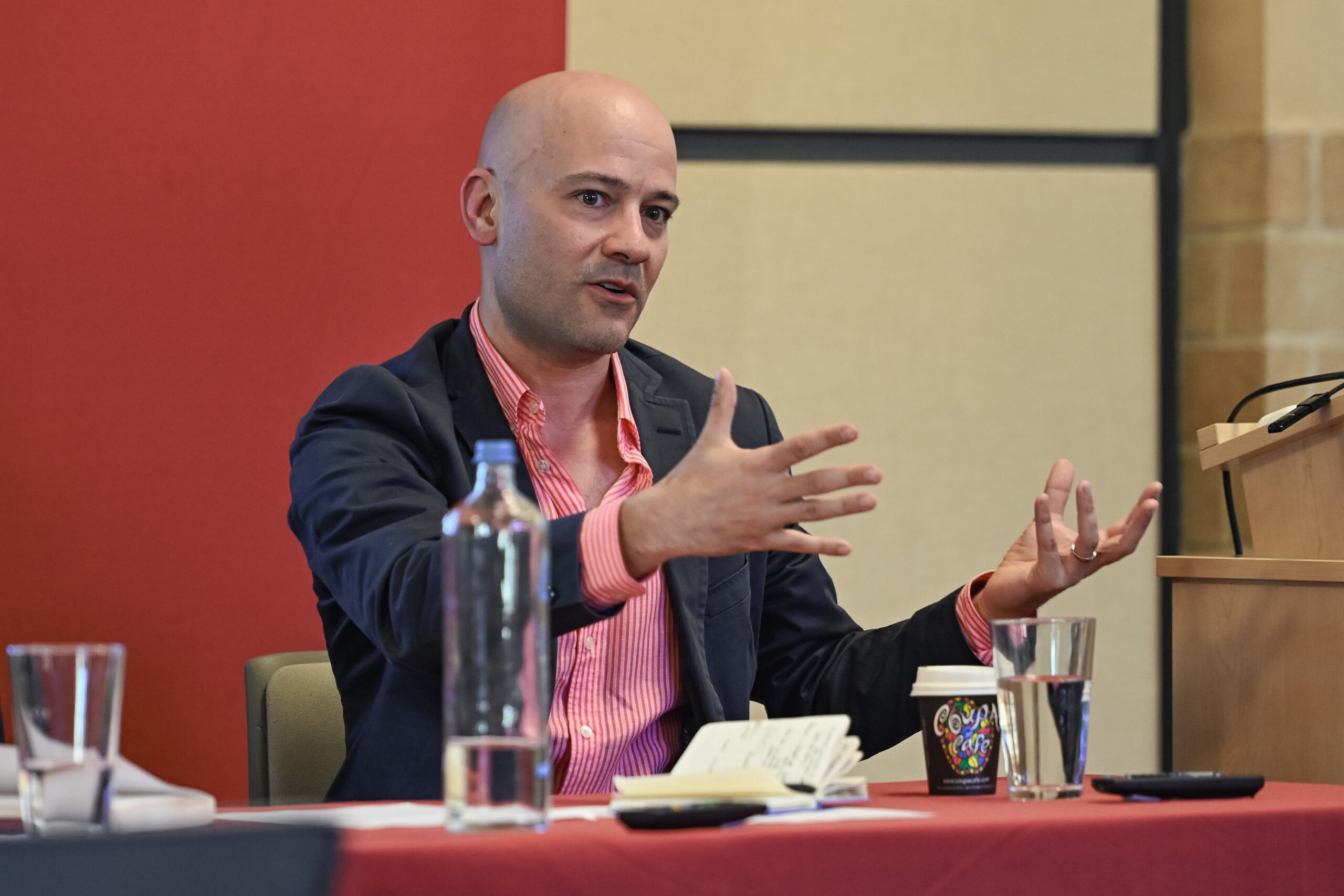Published May 3, 2024, 12:30 a.m., last updated May 3, 2024, 12:31 a.m.
One of the most important questions facing humanity today, said Güneş Murat Tezcür, is how people of different religions can “find more sustainable methods of coexistence.”
At a Tuesday event hosted by the Abbasi Program in Islamic Studies, Tezcür presented his newest book, “Liminal Minorities: Religion and Mass Violence in Muslim Societies,” which focuses on religious minorities subject to mass atrocities in countries like Iraq, Iran and Turkey.
During his talk, Tezcür examined the Yezidi genocide, which he wrote about in his book. Tezcür delved into events in 2014, when the Islamic State of Iraq and Syria (ISIS) troops raided Sinjar, Iraq, the center of Yezidi cultural and religious sites, where they kidnapped, murdered and forcibly converted the Yezidis. He explained that his encounter with survivors of the Yezidi genocide moved him to “have a much closer look at the Yezidi experience.”
“If you care about religious diversity, which is an important aspect of the human experience, here is an example of how religious diversity can be very fragile,” Tezcür said.
Halil Yenigun, the Associate Director of the Abbasi Program in Islamic Studies and the moderator of this event, said he had always grappled with some of the issues brought up in Tezcür’s book, like articulating “the independent power of religion as a system of ideas in explaining mass violence.”
Religion is usually talked about as an “ulterior motive and not as a cause in and of itself” in the context of mass violence, Yenigun said, as he expressed appreciation for Tezcür’s ability to provide a nuanced angle to this ongoing discussion of how religious differences — along with other factors such as power and greed — contribute to mass atrocities.
Jamila Alaketif, a visiting scholar from France who teaches business ethics and sustainable development, attended Tezcür’s talk to learn more about the connection between radicalization and mass violence. In the past, Alaketif said her French background led her to efforts to prevent radicalization among African and European youth, but she wanted to develop “a broader vision of ethnic minorities and religious minorities.”
Although Tezcür’s book specializes in Muslim communities, he said the concepts mentioned in his book can be applied to different religious minorities across history. Tezcür said one reason driving acts of mass violence is religious stigma associated with minority groups. Although these stigmas don’t always lead to violence, they can make it “difficult for people to understand each other and have respect for each other.”
In order for society to break free from these cycles of mass violence against religious minority groups, Alaketif said that practicing non-violence should be incorporated into formal education from a young age, and reiterated constantly throughout every child’s life. “[Violence] is the type of topic that we mostly study in specific centers like in criminal law or political science centers, but it shouldn’t be,” she said, calling on parental figures to teach children how to respect others despite their differences.
Maxwell Fite M.S. ’24, who attended the talk, said Tezcür’s words reiterated the need to strive for unity across religious affiliations.
“We have a lot of differences but how do we demonstrate that we share more in common than in differences,” Fite said.



